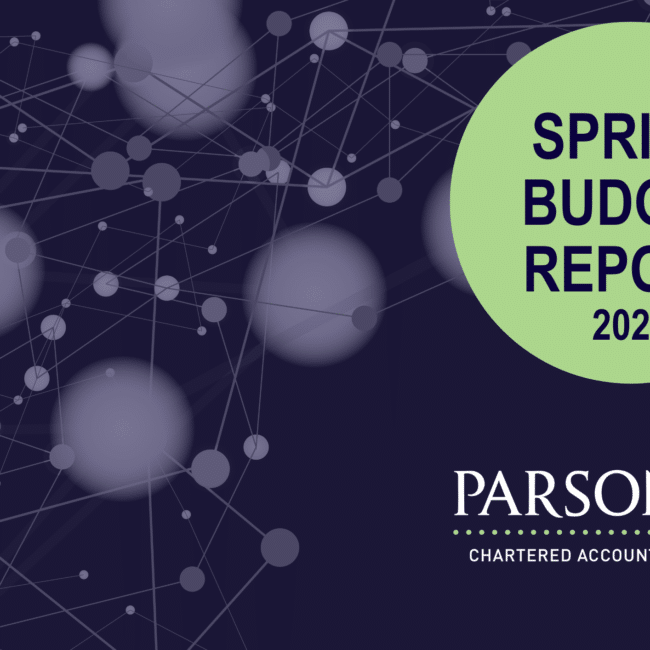
Should my business become a limited company?
Transitioning from self-employed or sole trader to limited company: when is it the right time and what are the benefits of going limited?
If you’re self-employed or working as a sole trader, it could be worth assessing whether this is still the right structure for your business. This article takes a look at the legal entity options and the benefits of choosing to register your business as limited. We also explain some of the tax implications and the scenarios which should prompt you to consider making the change.
Legal entity options available for aspiring business owners
Running a small business or business venture can be a complex task with a host of responsibilities and expectations placed on the business owner. It can be heavy on administration, there are legal and compliance requirements to be aware of and financial implications depending on your business structure.
Companies House sets out a number of different legal entity options available to aspiring business owners depending on the type of business they want to establish and the complexity of the business model.
There’s always the option to transition your business to a different legal structure
If you set up your business one way, there’s always the option to transition to a different legal structure at a later date. There may be some accounting and tax-related implications as a result, but for some business owners, and particularly those currently with sole trader or self-employed status, it could be worthwhile assessing how to use structure to maximise the potential of your business.
What’s the difference between a sole trader and a limited company?
A limited company is a type of business structure that has its own legal identity, separate from its owners (shareholders) and its managers (directors). This remains the case even if it’s run by just one person, acting as shareholder and director.
A sole trader is essentially a self-employed person who’s the sole owner of their business. It’s the simplest and most straightforward business structure and can be set up quickly on the gov.uk website: Set-up as a sole trader
Why assess your business structure?
There are a number of circumstances that could lead to you reassessing whether your business model is holding you back and needs changing:
- Your appetite for growth, or a change in your growth profile
- Changing how your profits are managed, such as exploring dividends
- A need for investment to expand or grow
- A change to the commercial risk involved in your business
Another aspect of your business structure to consider is VAT, as this is an option open to business owners regardless of whether you are self-employed or run a limited company. The threshold requiring you to register for VAT is currently £85,000, but you can register at any time. It’s worth noting, however, that VAT registration will require you submitting a periodic VAT return.
What are the benefits of becoming a limited company?
Limited liability (a limited company is a ‘distinct entity’)
One of the most significant benefits of running a limited company is that it is legally separate from its business owner, who therefore has limited liability for any financial business affairs. This means personal assets, such as your home or car, aren’t put at risk if there’s a financial problem with the business. Any losses attributed to the business are limited to what’s been invested into it.
In addition, because a limited company is a distinct entity from its owners, it may be easier to secure funding and investment than for a sole trader equivalent.
Companies House registration gives your limited company’s name legal protection
A limited company structure also means that no one else can use your unique company name once it has been registered. Sole traders do not enjoy any protections in this regard.
In some industries, operating as a limited company can provide a more professional image or brand perception. Some larger organisations prefer only to deal with limited companies rather than sole traders or partnerships.
Pensions, shareholders and succession planning
A limited company can issue various classes of shares, This means you can easily sell stakes in the business, or transfer ownership of shares in support of your succession plan. Also, a limited company can make tax savings on employee pensions, which can be claimed as a legitimate business expense before tax is deducted.
What are the tax implications of being a limited company?
Speaking broadly, limited companies are often more tax efficient than sole traders as profits are treated under corporation tax rules rather than income tax. Corporation tax offers a more favourable rate, meaning a company could be more profitable. There are also a number of allowances and tax-deductible costs associated with being a limited company that can add to the appeal of this structure.
When is the right time to register my company as limited?
Importantly, the key is not necessarily a single trigger or point in time, but recognising that something is changing in the way you are working that necessitates a review of your overall business approach.
When it comes to timing however, it’s important to get the advice of a qualified accountant. They will ensure that any changes align with the tax year to avoid unnecessary costs or the need for any dual reporting.







